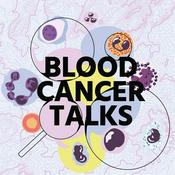This episode provides comprehensive coverage of key clinical trial updates from the 2025 International Myeloma Society (IMS) Annual Meeting in Toronto, with special focus on bispecific antibodies and novel immunotherapies across the multiple myeloma disease continuum—from smoldering disease through relapsed/refractory settings. Dr. Alfred Garfall provides expert commentary on study design, efficacy, safety considerations, and clinical implications.
Topics Covered
1. SMOLDERING MULTIPLE MYELOMA
LINKER-SMM1
Phase 2, open-label study of linvoseltamab monotherapy (200 mg) in patients with high-risk smoldering multiple myeloma by 20/2/20 or PETHEMA criteria, with 2-year treatment duration.
Discussion Points:
Appropriateness of 2-year treatment duration for precursor condition
Efficacy and MRD-negative rates
Safety considerations in asymptomatic population
Patient selection if available today
2. NEWLY DIAGNOSED MULTIPLE MYELOMA
MajesTEC-5
Phase 2 trial evaluating three teclistamab-daratumumab-based induction regimens in 49 transplant-eligible NDMM patients, followed by auto-transplant and fixed-duration Tec-Dara maintenance.
Discussion Points:
Post-induction MRD-negativity rates with Tec-DR and Tec-DVR
Grade 3-5 infection rates and infection-related deaths
Questionable utility of bortezomib and need for ASCT with 100% MRD-negativity
High infection prophylaxis requirements
MagnetisMM-6
Phase 1/2 dose-finding study of fixed-dose elranatamab 76 mg Q4W with Dara-Len in 37 transplant-ineligible NDMM patients (median age 75 years).
Discussion Points:
VGPR or better rates
Safety profile including infections and CRS/ICANS
Risk of continuous therapy in elderly/frail population
LINKER-MM4
Phase 1/2 study of linvoseltamab monotherapy in NDMM with both transplant-eligible and transplant-ineligible pathways, exploring three dose levels (50, 100, 200 mg).
Discussion Points:
Efficacy of single-agent Linvo in NDMM
Whether any NDMM population could achieve long-term control with single-agent BCMA BsAb
Safety profile
3. RELAPSED/REFRACTORY MULTIPLE MYELOMA
CAMMA-1
Phase 1b randomized dose-expansion study of cevostamab (FcRH5×CD3 bispecific) combined with pomalidomide-dexamethasone in BCMA-naïve patients with median 2 prior lines of therapy.
Discussion Points:
Efficacy and safety results
Positioning in treatment paradigm
Use before BCMA BsAbs?
Sonrotoclax + Dexamethasone in t(11;14) R/R MM
Phase 1/2 study of sonrotoclax (next-generation BCL2 inhibitor) plus dexamethasone as an all-oral regimen in patients with t(11;14) R/R MM (median 3 prior lines, ~75% triple-exposed).
Discussion Points:
Efficacy including response rate and PFS
Safety profile
Future of BCL2 inhibitors in t(11;14) myeloma in the era of BsAbs and CAR T
RedirecTT-1
Phase 2 trial combining teclistamab + talquetamab in 90 heavily pretreated patients with R/R extraosseous extramedullary disease (84% triple-class refractory, 36% penta-refractory, 20% prior BCMA CAR T).
Discussion Points:
Response rate and durability in difficult-to-treat population
Safety concerns with dual bispecific combination
Off-label use considerations
4. CAR T-CELL THERAPY TOXICITIES
CAR T Immune-Related Adverse Events (UPenn Study - Ho et al)
Large cohort study of 198 patients (125 cilta-cel, 73 ide-cel) examining all adverse events other than CRS, ICANS, IEC-HS, and IECAHT.
Discussion Points:
Landscape of CAR T IRAEs: incidence, types, and timing
Risk factors identified for CirAEs
Mechanism of toxicities and role of CD4+ CAR T-cells
Clinical implications: Should prophylactic corticosteroids be used? What ALC threshold? Optimal dose/duration? Prospective studies needed?



